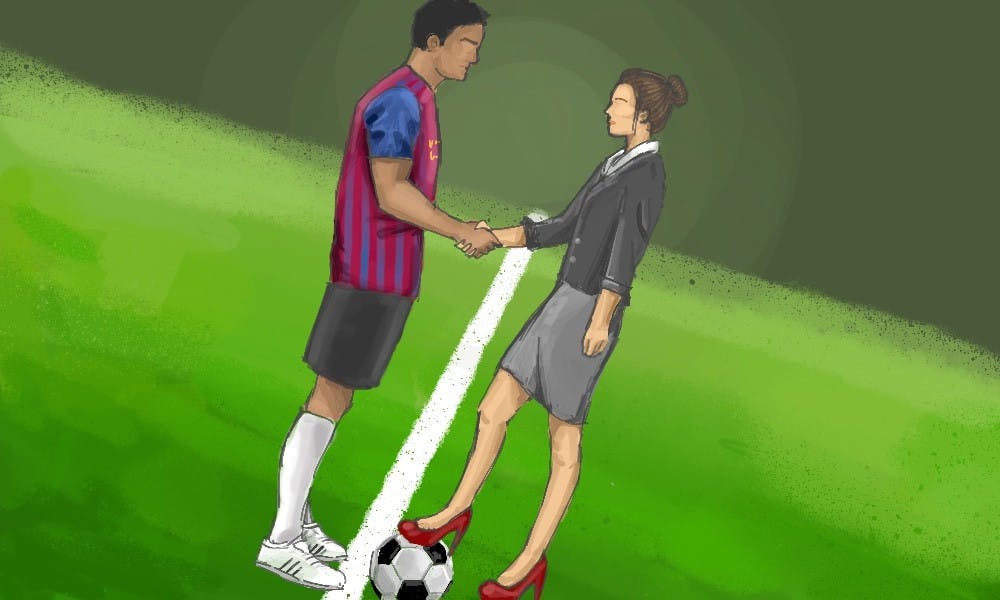
Women athletes are paid far less than men in many sports, sports journalists are far less likely to be women than men, and women are still a relative rarity in athletics administrations. Penn, and the rest of the Ivy League, must work harder to achieve equality in hiring for their sports programs.
A landmark 2017 study conducted by the Institute for Diversity and Ethics in Sports for the 45th anniversary of Title IX, the famous section of the Education Amendments Act of 1972 that banned gender-based discrimination in sports, found that the Ivy League beat out every other conference studied, with 55% of Ivy women’s teams coached by women; Penn was last in the conference at only 40%. According to the NCAA demographics database, only 27% of head coaches across the Ivy League are women.
It’s not just coaching. Among Division I schools in general, women are vastly underrepresented in sports administration, according to the NCAA’s database. There are only a few NCAA-recognized positions that are at least half-filled by women: administrative assistant, life skills coordinator, and academic advisor. Positions of leadership in administration are not much better: Only 11% of athletics directors at D-I schools are women.
Penn’s own athletics director, M. Grace Calhoun, is a woman and the Ivy League generally has higher percentages of female representation than the D-I average. But the Quakers and the rest of their conference have a long way to go before reaching gender equity.
Students and Ivy fans should demand that administrators create programs that give an equal opportunity to people regardless of gender. The historic exclusion of women from sports can only be rectified by a concerted effort by athletics programs to seek out qualified women and promote them through the ranks of both men’s and women’s sports.
An excellent example of this is when 2019 Wharton graduate Sarah Parks was hired this year as director of operations for the men’s basketball program. She is currently the only woman to hold this position at any Ivy men's basketball program. But the fact that cases like Calhoun and Parks at Penn are notable is evidence that the University must do more to promote women in athletics.
Part of this effort will necessarily include changing the culture of sports to be more inclusive. Parks has said that, although she doesn’t generally encounter overt sexism, there is an expectation that her role will be filled by a man. With changing demographics, old norms about who should be allowed to perform what job will need to change.
Sports is fundamental to American society and culture. Many people grow up playing and watching sports, and engaging in this important element of cultural life should not be inhibited because of gender. Title IX enshrined the right of women to participate in sports. But there’s a long way to go before women have an equal right to lead sports.
Sports should be no exception to Penn’s stated values on gender and diversity. The fact that Penn has women in a few key leadership roles, including University president and athletics director, is not a reason to stop pushing. Penn must be a leader on equity at all levels of sports.
Editorials represent the majority view of members of The Daily Pennsylvanian, Inc. Editorial Board, which meets regularly to discuss issues relevant to Penn's campus. Participants in these meetings are not involved in the reporting of articles on related topics.
The Daily Pennsylvanian is an independent, student-run newspaper. Please consider making a donation to support the coverage that shapes the University. Your generosity ensures a future of strong journalism at Penn.
Donate






